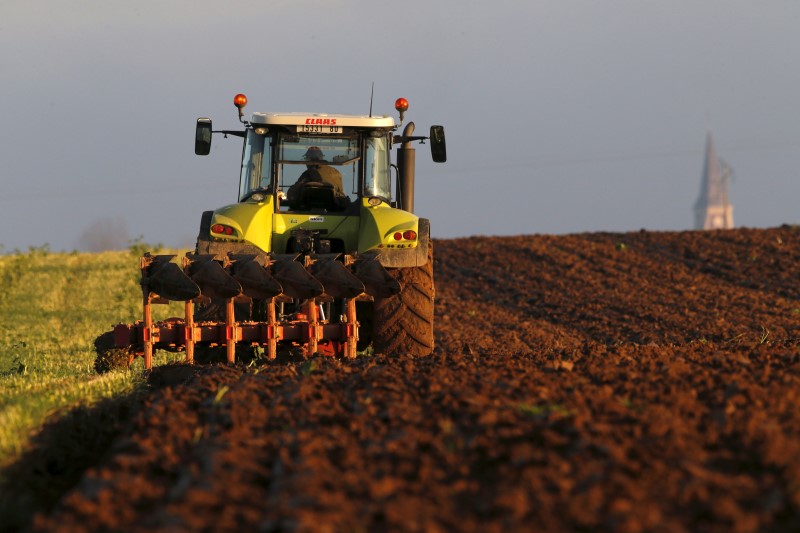LONDON (Reuters) - The European Union's decision to ban some widely used insecticides is likely to dent sugar beet production in the trading bloc, farming groups said on Thursday.
EU countries backed a proposal last week to extend a partial ban on the use of insecticides known as neonicotinoids that studies have shown are harmful to bees.
"This decision has a devastating impact on beet growing. With this ban, all French regions are likely to be affected by viral jaundice, with potential yield losses estimated at 12 pct at national level, and up to 50 pct in certain ocean climate zones,” French sugar beet growers group CGB said in a statement.
"It is a very hard blow for sugar beet growers and for the sustainability of the French and European sugar sector in general," it said.
Yield losses were also expected in Britain.
"It is likely there will be significant impacts on sugar beet yields in the UK, exacerbated by our maritime climate that enables significant pest and disease pressure," Michael Sly, the National Farmers Union's sugar board chairman, said.
"As a matter of urgency, the home-grown sugar industry will now be working with the government to try and secure solutions for beet growers ahead of the 2019 crop.”
German farming association DBV president Joachim Rukwied also said the ban would have an impact on sugar beet farming.
"The size is difficult to assess. This means there is now a real challenge to develop alternatives and to approve new products quickly so that we can protect our crops from damaging pests," he said.
A ban on neonicotinoids' use has already been imposed for flowering crops such as rapeseed which attract bees.
Some farmers, who struggled to contain pests such as cabbage stem flea beetles, planted less rapeseed following that ban but generally yields held up in the EU.
"It’s not the first time that neonicotinoid producers and farmers have made alarmist predictions," Greenpeace EU food policy director Franziska Achterberg said.
"When the EU banned use on oilseed rape in 2013, they said yields would collapse. In fact, yields have been higher since the ban than before."
